7 Behavioral Interview Questions to Gauge the Skills of a Lead Aircraft Maintenance Technician

Hiring a Lead Aircraft Maintenance Technician (A&P) requires a deep understanding of the candidate’s technical skills, experience, and leadership qualities. Conducting a behavioral interview can help hiring managers assess these critical skills by asking specific questions that elicit detailed examples of the candidate’s past behavior and performance in relevant situations.
In this article, we will discuss seven behavioral interview questions that can help gauge the skills of a Lead Aircraft Maintenance Technician. These questions are designed to evaluate the candidate’s technical knowledge, problem-solving abilities, communication and collaboration skills, leadership style, commitment to safety and quality, and adaptability to changing situations. By asking these questions, hiring managers can gain a more comprehensive understanding of the candidate’s capabilities and determine if they are the right fit for the organization.
1. Tell me about a complex maintenance issue you handled and how you resolved it.
This behavioral interview question is designed to gauge the candidate’s ability to handle complex maintenance issues and troubleshoot problems effectively. The candidate’s answer should include a specific example of a complex maintenance issue they have faced in the past and the steps they took to resolve it.
A strong answer would include details about the candidate’s problem-solving approach, the resources they utilized to resolve the issue, how they communicated with other team members or stakeholders involved, and the final outcome of the situation. The interviewer will be looking for evidence of the candidate’s technical expertise, ability to think critically and creatively, communication and collaboration skills, and commitment to safety and quality.
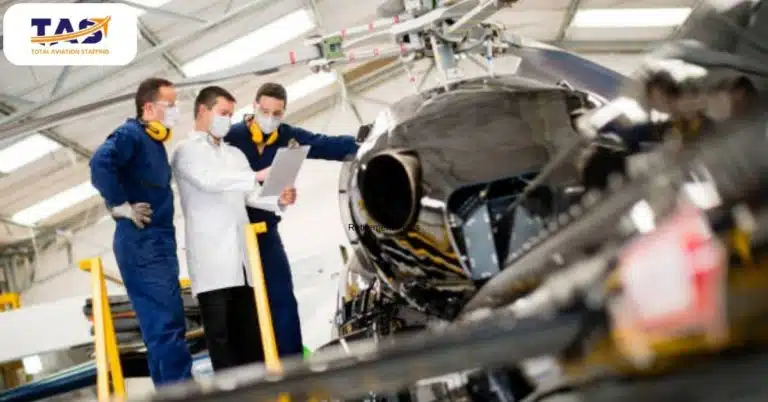
2. How do you prioritize tasks and delegate responsibilities to ensure timely completion and quality standards?
This question is designed to assess the candidate’s ability to effectively manage their team and ensure that work is completed on time and to the required standards. A strong answer would include details about the candidate’s process for prioritizing tasks, such as assessing the urgency and impact of each task and considering the availability and skill sets of team members.
The candidate should also describe their approach to delegating responsibilities, including how they communicate expectations and provide guidance and support to team members. The candidate should also emphasize their commitment to quality and safety, and how they ensure that all work is completed to the highest standards. Finally, the candidate should describe how they monitor progress and adjust plans as needed to ensure that work is completed on time and within budget.
Overall, the interviewer will be looking for evidence of the candidate’s leadership skills, communication abilities, and commitment to achieving results through effective team management.
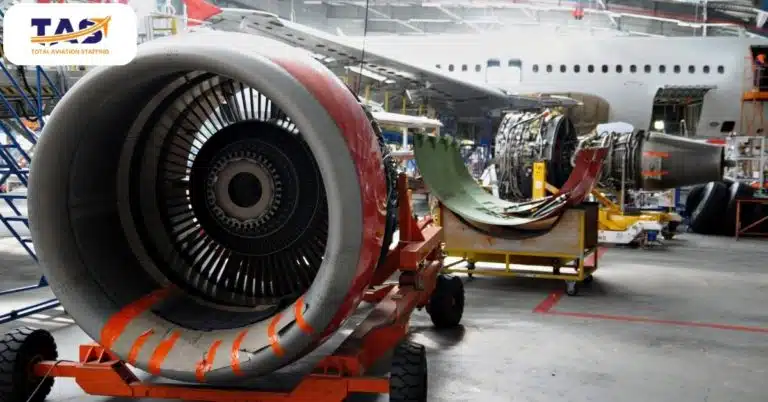
3. Describe a challenging aircraft maintenance or repair decision you made and how you managed it.
This behavioral interview question is designed to assess the candidate’s ability to make tough decisions related to aircraft maintenance or repairs. A strong answer would include a specific example of a difficult decision the candidate had to make in the past, such as determining whether to repair or replace a critical component or deciding whether to ground an aircraft due to a safety concern. The candidate should describe the situation in detail, including the factors they considered and the potential consequences of their decision.
They should also explain how they gathered information, consulted with other experts, and weighed different options before making a final decision. Additionally, the candidate should emphasize their commitment to safety and quality, and how they ensured that their decision aligned with these priorities.
Finally, the candidate should describe the outcome of their decision, including any challenges they faced and how they overcame them. Overall, the interviewer will be looking for evidence of the candidate’s critical thinking abilities, decision-making skills, and commitment to safety and quality.
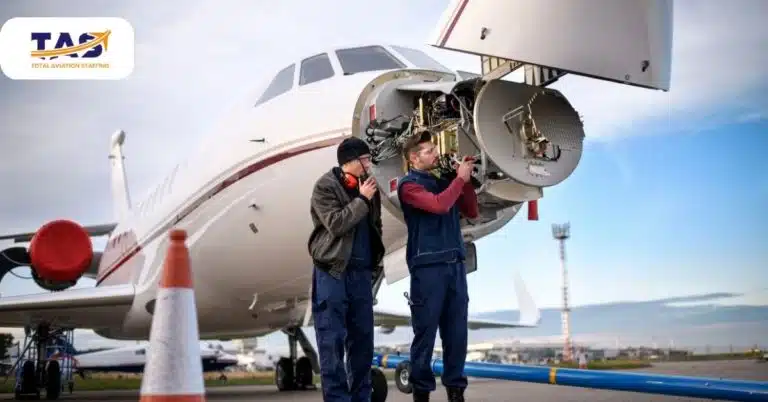
4. How do you keep yourself and your team updated with the latest aircraft maintenance technology and procedures?
This question is designed to assess the candidate’s approach to staying current with the latest developments in aircraft maintenance technology and procedures, and how they ensure that their team members are also informed and trained in these areas. A strong answer would include details about the candidate’s process for staying informed about new technologies and procedures, such as attending training courses, reading industry publications, and participating in professional organizations.
The candidate should also describe how they communicate these updates to their team members, including how they ensure that everyone has the necessary training and resources to implement new procedures effectively. Additionally, the candidate should emphasize their commitment to safety and quality, and how they ensure that any new procedures or technologies align with these priorities. Finally, the candidate should describe how they measure the effectiveness of their training and development programs, and how they make adjustments based on feedback and results.
Overall, the interviewer will be looking for evidence of the candidate’s commitment to continuous learning and improvement, and how they foster a culture of knowledge-sharing and collaboration within their team.
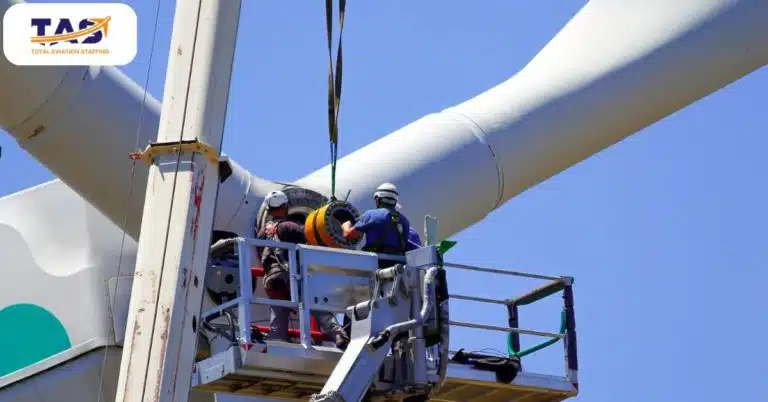
5. Example of collaboration with other teams to ensure efficient completion of maintenance work?
This behavioral interview question is designed to assess the candidate’s ability to collaborate effectively with other departments or teams to ensure that maintenance work is completed efficiently and with minimal disruption. A strong answer would include a specific example of a time when the candidate had to work closely with another department or team, such as flight operations or customer service, to coordinate maintenance work.
The candidate should describe the situation in detail, including the challenges they faced and the steps they took to overcome them. They should also explain how they communicated with the other department or team, including how they ensured that everyone had a clear understanding of the work being done and the expected timeline. Additionally, the candidate should emphasize their commitment to safety and quality, and how they ensured that any maintenance work was completed to the highest standards.
Finally, the candidate should describe the outcome of their collaboration, including any feedback or lessons learned. Overall, the interviewer will be looking for evidence of the candidate’s communication and collaboration skills, as well as their ability to work effectively across departments and teams to achieve shared goals.
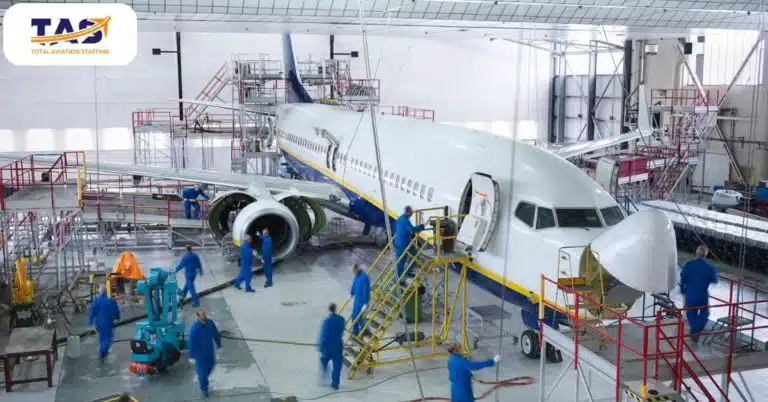
6. How to prioritize safety in maintenance work and communicate it to stakeholders?
To assess the candidate’s approach to safety and their ability to communicate safety priorities to their team members and other stakeholders. A strong answer would include details about the candidate’s process for ensuring that safety is always the top priority in maintenance work, such as conducting regular safety audits, following industry best practices, and providing ongoing safety training to team members.
The candidate should also describe how they communicate safety priorities to their team members, including how they ensure that everyone has a clear understanding of safety procedures and protocols. Additionally, the candidate should emphasize their commitment to open communication and collaboration when it comes to safety, including how they encourage team members to report safety concerns and how they work to address these concerns promptly.
Finally, the candidate should describe any specific examples of how they have prioritized safety in the past, including how they handled safety-related incidents or emergencies. Overall, the interviewer will be looking for evidence of the candidate’s commitment to safety, their ability to communicate safety priorities effectively, and their willingness to listen to and address safety concerns from team members and other stakeholders.
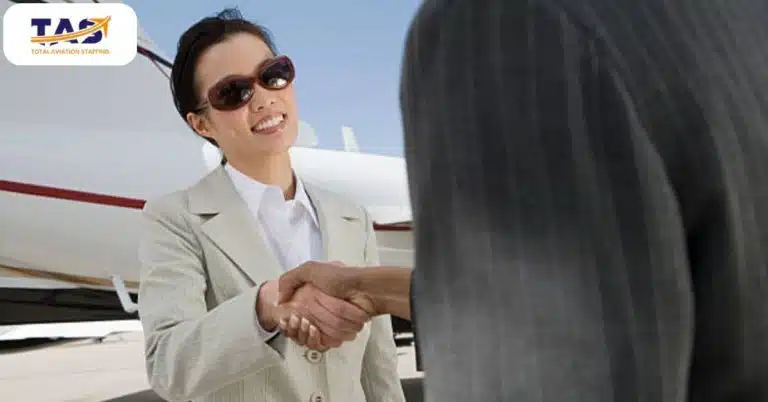
7. Describe a challenging maintenance project you led and how you motivated your team to succeed.
This behavioral interview question is designed to assess the candidate’s leadership skills and ability to motivate and inspire their team during challenging maintenance or repair projects. A strong answer would include a specific example of a challenging project the candidate led, describing the situation in detail, including the nature of the challenge, the size and composition of the team, and the project timeline.
The candidate should then explain their approach to motivating and inspiring their team, including how they communicated the importance of the project, set clear goals and expectations, and provided support and resources to team members as needed. Additionally, the candidate should describe any specific strategies they used to maintain team morale and overcome obstacles, such as offering positive feedback, recognizing team members’ contributions, and promoting open communication and collaboration.
Finally, the candidate should describe the outcome of the project, including any lessons learned and how they celebrated the team’s success. Overall, the interviewer will be looking for evidence of the candidate’s leadership skills, their ability to motivate and inspire their team, and their approach to managing challenging projects effectively.
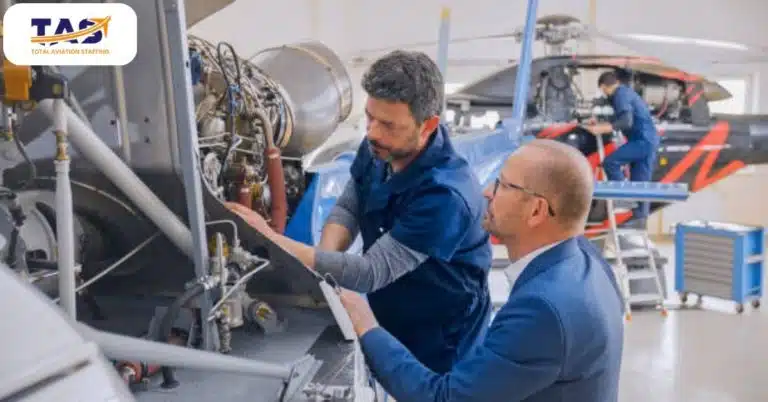
Wrapping Up
Hiring a Lead Aircraft Maintenance Technician requires a deep understanding of the candidate’s technical skills, experience, and leadership qualities. Conducting a behavioral interview is an effective way to evaluate these critical skills by asking specific questions that elicit detailed examples of the candidate’s past behavior and performance in relevant situations.
The seven behavioral interview questions discussed in this article can help gauge the candidate’s technical knowledge, problem-solving abilities, communication and collaboration skills, leadership style, commitment to safety and quality, and adaptability to changing situations.
By asking these questions, hiring managers can gain a more comprehensive understanding of the candidate’s capabilities and determine if they are the right fit for the organization. Ultimately, hiring a skilled and experienced Lead Aircraft Maintenance Technician is essential for ensuring the safety and reliability of aircraft operations.
Are you looking for a qualified Lead Aircraft Maintenance Technician? Get in touch with Total Aviation Staffing today! Our highly experienced aerospace and aviation placement specialist team offers staffing solutions, executive & technical searches, market studies, salary surveys, internal recruiting support programs, and more. We have an extensive network of professionals who are ready to join your organization. Get in touch with us today for a free consultation and let us help you find the best candidate for your team. We guarantee to deliver high-quality candidates that fit your exact staffing needs. Contact Total Aviation Staffing now!
